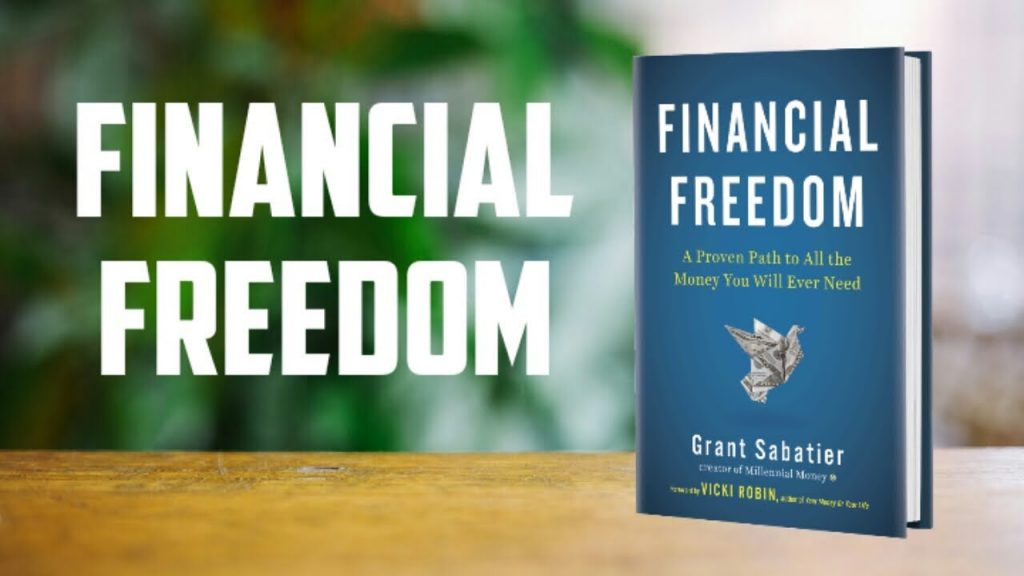Some people will tell you that you can’t get rich quick. Grant Sabatier will tell you they’re full of s***. When people hear “get rich quick,” they think “get rich quick without doing any hard work.” If that’s your idea of get rich quick, then Financial Freedom by Sabatier is not the book for you. But if you’re interested in learning how to manage your money (after busting your tail to earn a lot of it) then you will want to read this book. It’s loaded with information about investing strategies, taking advantage of tax laws, calculating the value of your time, and much, much more. Below are some of my thoughts on the book, though this post will only scratch the surface of what I learned reading this book.
Financial Freedom Book Review
Making More Money
As Sabatier points out in the book, there are typically three factors to consider when you want to make more money: how much you save, how much you spend, and how much you currently make. The problem is that people often prioritize the wrong factors. They try to save/invest more or cut back unnecessary expenses, which is a great start. But they’re limited to how much they can save based on how much money they make. Instead, Sabatier points out that the best way to have more money is by making more of it, not spending less.
There are several different ways to go about making more money for yourself. The first is to work hard at your job to earn a promotion. Your day job will be your biggest source of income a majority of the time, especially thanks to the investment account and insurance benefits that come with it. In the book, Sabatier gives advice on how to ask for a raise and make sure that you are receiving fair compensation for your services.
To go along with a day job, Sabatier is a huge proponent of side hustles in Financial Freedom. A big reason for advocacy for side hustles is that they allow you to keep the money for yourself, rather than having your employer make money off of your hard work. He gives many different examples and stories in the book of people who have successfully started a side hustle and made huge amounts of money doing so. Something Sabatier calls the “enterprise mindset” is his biggest key to starting side hustles and having multiple sources of income.
The best passive income of all, according to Sabatier, is investing. Money invested in the stock market will grow and other than making your original investment, there is no additional work to be done. We’ve been over it before on this blog, in this post. If you really want your money to grow, you need to be investing as much as possible.

Time is Money
Another major talking point in Financial Freedom is making the most of your time. Yeah, you might not get as much sleep. Sure, you might have to pass up on some time going out with your friends. But if you want to make more money and reach retirement sooner (Sabatier refers to retirement as when you no longer need to work to make money, even if you elect to continue working) then you will need to budget your time more wisely.
In the book, Sabatier takes you through the process of calculating your real hourly wage. Not how much you make from your job, but how much your time is actually worth. Knowing this number will help you make better time management decisions. If someone offers you $20 for an hour of work, but you know your real hourly wage is $30 per hour, then your time is better spent elsewhere.
Since reading the book, I know I have been much more productive with my time. It inspired me to start this blog. With more free time due to school being moved online, I’ve been networking, researching potential career paths, and improving skills that will help me accomplish my goals. Sure, I’m not making money doing any of this. But the time that I’m investing into all these things is an investment in my future self, when I will be able to make more money by having these improved skills.
Educational, Not Assertive
One thing I really liked about this book is that it was written to educate readers, not turn them into sheep. Sabatier repeats multiple times throughout the book things like, “If you’d rather spend time with friends than working on your side hustle, that’s fine. Just know the benefits and drawbacks of either choice.” He’s not telling you what to do. Instead, he’s telling you what he did and giving you the information needed if you want to decide to follow a similar path.
Too often, people don’t want to think for themselves. They see a successful person and think, “If I do exactly what they did, then I’ll be successful too.” No, don’t do what they did. Instead, learn why they did what they did. Do your research and adjust your findings to fit your personality. You don’t need to work 80+ hours a week to be successful. But if you want to, you’ll probably see better results. That’s what this book is about. It’s about providing you the necessary information to make choices that will make you happy.

Getting Into the Specifics
A problem with some books is that they are intended to be motivational, not educational. Financial Freedom accomplishes both. It’s very motivational and like I said, it motivated me to start this blog. But what good is motivation if you don’t have the necessary skills to go with it? Wanting to make more money is great, but knowing how to actually make more money is totally different.
After the motivational parts of the book, Sabatier goes into specifics about ways to make more money. He gives the exact investment strategy that he used when he went from $2.26 in his bank account to over $1,000,000 in five years. There’s also information about different kinds of investing accounts (like 401(k), IRAs, and more), and the advantages and disadvantages of each. As someone whose mom does my taxes, the chapter about tax optimization was definitely helpful. I’d never heard of some of the tax strategies and loopholes mentioned. Now that I know about them, I can’t believe that more people don’t use them to their advantage.
Conclusion
Like I said, this doesn’t even scratch the surface of everything I learned from this book. Grant Sabatier did a great job with it. It’s definitely a book that I see myself reading again when I get older, get my first job, and start making investment decisions. I highly recommend this book to anyone interested in taking control of their own finances and reaching financial independence faster. As you’ll soon realize, you don’t need to be a finance professional, and you don’t need to hire one, to help optimize your financial situation.


LEAVE A REPLY